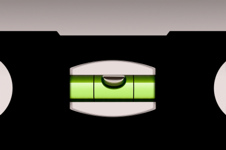Taller Final
A. Categorias lexicales y uso del diccionario.
1. Selecciona un texto relacionado con tu area de interes.
Identifica 3 palabras que no conoces.. escribe lo que significa en español....agrega las abreviaciones.
2. Idea principal del texto (en español)
3. Categorias lexicales: (2 ejemplos por categoria)
What Are Your Values?
Deciding what's most important in life
http://www.mindtools.com/pages/article/newTED_85.htm


Acting in alignment with your values.
© iStockphoto
How would you define your values?
Before you answer this question, you need to know what, in general, values are.
Your values are the things that you believe are important in the way you live and work. They (should) determine your priorities, and, deep down, they're probably the measures you use to tell if your life is turning out the way you want it to.
When the things that you do and the way you behave match your values, life is usually good – you're satisfied and content. But when these don't align with your values, that's when things feel... wrong. This can be a real source of unhappiness.
This is why making a conscious effort to identify your values is so important.
How Values Help You
Values exist, whether you recognize them or not. Life can be much easier when you acknowledge your values – and when you make plans and decisions that honor them.
If you value family, but you have to work 70-hour weeks in your job, will you feel internal stress and conflict? And if you don't value competition, and you work in a highly competitive sales environment, are you likely to be satisfied with your job?
In these types of situations, understanding your values can really help. When you know your own values, you can use them to make decisions about how to live your life.
| Palabras Nuevas: | | | | | | | | | |
| Alignment: Alineada, en caonsonancia | | | | | | | | |
| Acknowldge: conocer | | | | | | | | | |
| Behave: comportarse | | | | | | | | | |
| | | | | | | | | | |
| Idea princiapal del texto: |
| La idea principal del texto trata sobre los valores personales, y si se actuan en función a estos valores <> |
| para esto es necesario conocer el significado de los valores. | | | |
| | | | | | | | | | |
| | | | | | | | | | |
| Categorias Lexicales: | | | | | | | | | |
Palabras de Contenido
|
Palabras de Estructura
|
|
|
|
Sustantivos
|
Verbo
|
Adjetivos
|
advervios
|
Conjuciones
|
Preposiciones
|
Articulos
|
Demostrativos
|
|
|
|
values
|
are
|
good
|
probably
|
and
|
at
|
a
|
this
|
|
|
|
life
|
know
|
wrong
|
usually
|
or
|
before
|
the
|
that
|
|
|
|
|
|
|
|
but
|
|
|
|
|
|
|
|
|
|
|
|
|
|
|
|
|
|
Prefijos
|
Sufijos
|
Cognados Verdaderos
|
Cognados Falsos
|
|
|
|
|
|
|
|
|
|
|
|
|
|
|
recognize
|
re - cogniz ed
|
desicions
|
turning
|
|
|
|
|
|
|
|
|
probably
|
plans
|
|
|
|
|
|
|
|
|
|
|
|
|
|
|
|
|
|
|
|
|
|
|
|
|
|
|
|
|
|
|
Oracion. 1
|
Your values are the things that you believe are important in the way you live and work.
|
|
|
|
|
|
|
|
|
|
|
|
|
Frase Nominal
|
NFN
|
PRE
|
POST
|
NFV
|
Frase Verbal
|
Modals
|
|
|
|
values
|
Your
|
|
are
|
the things that you believe are important in the way you live and work.
|
|
|
|
|
|
|
|
|
|
|
|
|
|
|
Conexión Referencial
|
Conex Ref Demostrativa
|
When, where, who, what
|
Tiempo
|
|
|
|
|
|
|
|
|
that
|
|
Presente Simple
|
|
|
|
|
|
|
|
|
|
|
|
|
|
|
|
|
|
|
|
|
|
|
|
|
|
|
|
|
|
|
|
|
|
|
|
|
|
|
|
|
Oracion. 2
|
Life can be much easier when you acknowledge your values
|
|
|
|
|
|
|
|
|
|
|
|
|
Frase Nominal
|
NFN
|
PRE
|
POST
|
NFV
|
Frase Verbal
|
Modals
|
|
|
|
Life
|
|
|
can
|
be much easier when you acknowledge your values
|
can
|
|
|
|
|
|
|
|
|
|
|
|
|
|
Conexión Referencial
|
Conex Ref Demostrativa
|
When, where, who, what
|
Tiempo
|
|
|
|
|
|
|
|
|
this / these
|
when
|
Present Simple
|
|
|
|
|
|
|
|

